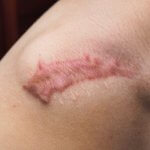This week is Down’s Syndrome Awareness Week and this week we’ll be highlighting how stem cells can be used to help people with Down’s.
There are around 40,000 people in the UK who have Down’s Syndrome and 1:1000 babies born in the UK will have Down’s, that’s around 8,000 a year[1].
Down’s Syndrome occurs at conception and is caused by an extra chromosome in the baby’s cells. Down’s is an irreversible condition, there is no cure. People with Down’s do not suffer from the condition and they are not ill, it is not a disease[2]. However, people with Down’s Syndrome are more likely to suffer from certain health problems because they have Down’s, problems which can be helped or even cured with stem cells.
One such problem is Congenital Heart Defect. A congenital heart defect means that it is a heart defect that you are born with. Around 50% of children with Down’s Syndrome will be born with a congenital heart defect, of those 60% will need hospital treatment[3].
Another health issue faced by those with Down’s is an increased likelihood of developing leukaemia, in fact children with Down’s are 10 to 20 times more likely to develop the illness than those without Down’s[4].
Both congenital heart defects and Down’s Syndrome can be diagnosed in pregnancy, giving parents the opportunity to bank their baby’s umbilical cord blood. The opportunity to do this only presents itself once and can give parents extra security knowing they have a stem cell match for their child and the opportunity to access emerging and regenerative therapies.
Many parents of children with Down’s worry about the increased risk of their child developing dementia. It is a common belief that children with Down’s develop dementia and at an early age. A recent study showed that children with Down’s were no more likely to develop dementia than those without Down’s[5].
[1] http://www.downs-syndrome.org.uk/about/general/
[2] http://www.downs-syndrome.org.uk/about/general/
[3] http://www.nhs.uk/Conditions/Downs-syndrome/Pages/Complications.aspx
[4] http://www.cancer.gov/cancertopics/pdq/treatment/childAML/HealthProfessional/page8
[5] http://www.nhs.uk/Conditions/Downs-syndrome/Pages/Complications.asp









